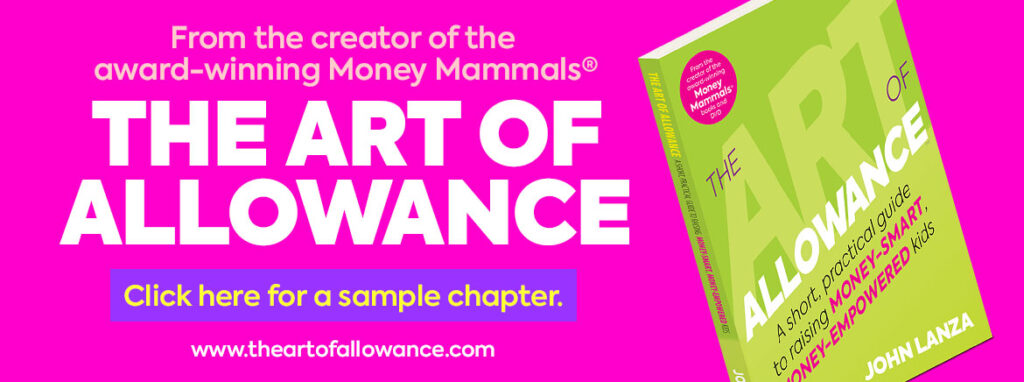
“They [kids] know what they’re experiencing. They may have insight into how it makes them feel or what it makes them think. It’s just much more effective and kind of more fair and appropriate to have kids be part of that conversation.”
— Erin McNeill
Host John Lanza and guest Erin McNeill discuss the importance of starting the media literacy conversation with children early, just like parents can do with the financial literacy conversation. Erin explains that kids are likely willing to understand and decode the myriad media messages they face. She even suggests that parents have conversations with teachers about integrating media literacy into classrooms and advocate for it to become a required skill taught in schools, just like reading and math. Erin and John also highlight the importance of digital wellness, the process of helping kids recognize targeted marketing, the connection between media literacy and financial literacy and the challenges and opportunities presented by AI.
Erin McNeill is the CEO and Founder of Media Literacy Now. She established this nonprofit in 2013 to address the messages her children were receiving through cartoons and advertisements. Erin and Media Literacy Now are leading the grassroots movement to ensure all students learn the 21st-century media literacy skills they need for health, well-being, economic participation and citizenship.
Links (From the Show)
- Media Literacy Now
- Media- and Money-Smart Mentions
- Robert Therrien’s Under the Table exhibit at The Broad
- Jonathan Haidt’s book, The Anxious Generation
- John’s newsletter on Haidt’s four norms
- Haidt’s appearance on Tyler Cowen’s podcast
- John’s third picture book, Joe the Monkey and Friends Learn About Spending Smart (You must create an account to read the digital version. And don’t forget to download the corresponding reading guide!)
- John’s short essay on “free” stuff
- Fairplay, formerly known as the Campaign for a Commercial-Free Childhood
- Communication theorist Marshall McLuhan
- Sociobiologist E. O. Wilson
- Kevin Kelly’s book, The Inevitable
- The Planet Money podcast
- Shari Graydon’s book, Made You Look
Show Notes (Find what’s most interesting to you!)
- What led Erin to found Media Literacy Now [2:48]
- Just what is media literacy? [4:07]
- Erin defines the concept of digital citizenship and explains its relationship to media literacy. [5:05]
- Digital wellness and its impact [6:17]
- Approaching child influencers [8:21]
- How the cereal aisle can help parents start a media literacy conversation with their kids [10:58]
- The journey to introduce media literacy in schools [15:31]
- Navigating smartphone and social media norms [22:27]
- Videogames: Vice or virtue? [28:02]
- Erin shares her main tip for media literacy conversations. [32:26]
- Manipulation is enlightening for kids. [37:32]
- How Erin talked to her children about money [40:15]
- Linking commercialization, advertising and money [42:01]
- The pervasiveness of media literacy [45:02]
- The amplification of AI [45:58]
- Erin explains what the term “media-empowered” means to her. [52:58]
- Experiences without electricity [53:16]
- Being aware of phone usage [53:45]
- “How is your entertainment media shaping your beliefs about yourself?” [54:03]
- Erin’s media literacy recommendations [55:07]
- Follow the work of Media Literacy Now [56:23]
- Erin’s request: Talk to someone about media literacy! [56:53]
If you liked this episode …
Interested in diving deeper into the videogame debate? In his Art of Allowance Podcast episode, child psychology researcher Chuck Kalish argues that videogames teach financial literacy better than books. Tune in at 1:13:24 for his reasoning.
Need more resources to protect your kids from rampant consumerism? Josh Golin, the Executive Director of Fairplay, shares many recommendations to protect children from both the obvious and the subtle pitfalls of materialism and social media. For a preview of his suggestions, stream this video short.
Want to hear more about technology’s impact on the future? Author, explorer and visionary Kevin Kelly defines his “protopia” concept during his podcast appearance. Listen in at 4:57 as he explains why this notion is better than its “utopia” counterpart.
Please Subscribe
If you like this podcast, then please leave a review and subscribe to the show. The Art of Allowance Podcast is available on iTunes, Spotify, Podchaser and now Amazon Music. Subscribing is free, and it will help us produce more enriching content for you to enjoy.

